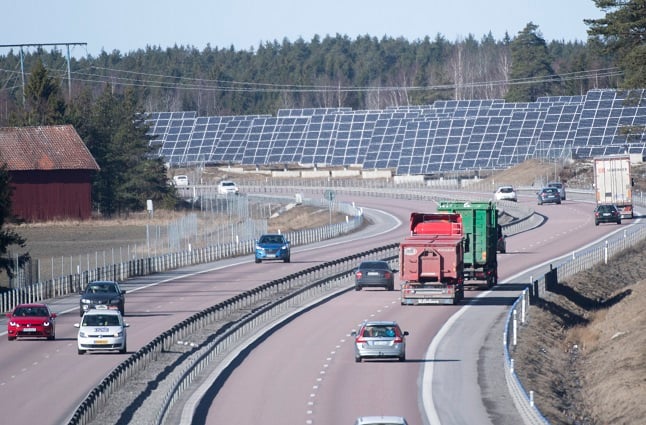It's due to difficulties in electricity supply, but the problem isn't evenly spread throughout the country.
Northern Sweden has relatively good supply, which means lower prices, but the situation in the southern half of the country has been tougher over the past few days.
The so-called spot price, set each day by power exchange Nordpool, was around 40 öre per kilowatt-hour in southern Sweden, and that's expected to shoot up during Thursday, potentially peaking at close to 200 öre per kilowatt-hour.
But in northern Sweden, the kilowatt-hour price was unlikely to go above 15 öre on Thursday.
For comparison, in 2018 the average yearly price was registered as 46 öre per kilowatt hour. But prices are usually lower during the summer, as reduced demand for electricity due to the warmer weather means lower prices.
Niclas Damsgaard, chief strategist for the Swedish power grid (Svenska kraftnät), said: “These are extreme levels. This is very very unusual, especially in summer.”
So why the regional variation? It's partly because the southern half of the country is more densely populated, which means more demand for electricity. And it's partly because northern Sweden has a better supply of wind and hydro power, so there is a surplus of energy, while very mild weather in the south means little wind power has been produced.
And on top of that, Sweden's nuclear plants are currently closed for annual maintenance, but three of the four closed plants are set to reopen from July 1st onwards.
This unusual combination of factors also led to a Swedish oil plant being turned on this week, a very unusual move for the middle of summer.
The big question: how much will your electricity bill be affected?
The cost of the electricity itself is actually a relatively small part of what consumers pay in their bill, with taxes, fixed prices and electricity grid fees all also factored in. So if you're using less electricity due to the warmer weather, the difference should not be too extreme, but it depends on your usage levels; the more you use, the more you'll be affected by the kilowatt-hour price.
Vocabulary
price – (en) pris
over the past few days – under de senaste dagarna
level – (en) nivå
unusual – ovanlig
surplus – (ett) överskott


 Please whitelist us to continue reading.
Please whitelist us to continue reading.
Member comments